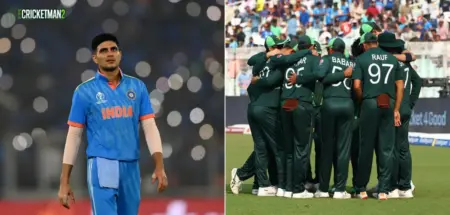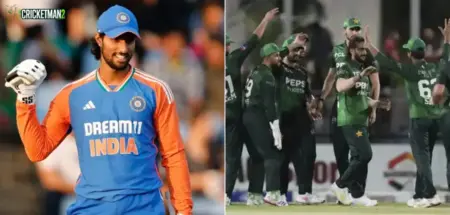In modern cricket, player contracts are evolving fast. Amid the rise of global T20 leagues and financial shifts, a new type of agreement has emerged — the Casual Contract. This flexible system allows cricketers to balance international duties with franchise commitments without completely leaving their national teams.
Introduced first by New Zealand Cricket (NZC), this contract has quickly become a key topic in world cricket. Let’s break down what it means, why it was introduced, and how it benefits both players and boards.
Background: Why the Casual Contract Was Introduced
Cricket boards worldwide have been facing a growing challenge — player migration to franchise leagues like IPL, BBL, CPL, and MLC. Many cricketers, especially from nations like West Indies, South Africa, and New Zealand, have chosen to retire early or decline central contracts to focus on more lucrative T20 league opportunities.
To address this issue and retain top players for major tournaments, New Zealand Cricket introduced the “Casual Playing Agreement” before the 2023–24 season. The system provided a middle ground — flexibility for players, stability for the board.
Read Also:- Lunch Break Time in Test Cricket
What is a Casual Contract in Cricket?
A Casual Contract is a short-term and flexible player agreement between a cricket board and selected players.
Under this, the player:
- Commits to play in major international tournaments like the ICC T20 World Cup or Champions Trophy.
- Remains available for a specific number of international series before those events.
- Can freely participate in franchise leagues across the world during other periods.
In return, the cricket board provides:
- Full access to coaching, training, and fitness facilities.
- Medical, physical, and mental health support.
- Inclusion in the national high-performance setup, even without a central contract.
New Zealand’s Casual Player Agreement: Key Details
New Zealand became the first cricket nation to officially introduce the casual player contract system.
Players Under Casual Agreement (2025–26 Season):
| Player | Contract Type | Key Role |
|---|---|---|
| Kane Williamson | Casual Contract | Senior batter, T20 World Cup commitment |
| Devon Conway | Casual Contract | Wicketkeeper-batter |
| Lockie Ferguson | Casual Contract | Fast bowler |
| Finn Allen | Casual Contract | Aggressive T20 opener |
| Tim Seifert | Casual Contract | Wicketkeeper-batter |
Commitment Clause:
All five players must remain available for:
- T20 World Cup 2026 in India and Sri Lanka.
- Specific home series against Australia, England, and West Indies leading up to the tournament.
How Does a Casual Contract Work?
| Aspect | Description |
|---|---|
| Contract Type | Short-term, flexible, non-central contract |
| Player Availability | Must be available for key ICC events and some series |
| Franchise Freedom | Players can participate in global leagues |
| Support from Board | Access to training, coaches, physios, and mental health services |
| Duration | Usually one cricket season (renewable) |
This model ensures the best T20 talents remain connected to the national side while pursuing financial stability from league cricket.
Like to know? One-Off Tournaments & Matches in Cricket
Benefits of a Casual Contract
For Players
- Freedom & Flexibility: They can plan their schedules and play in global leagues.
- Financial Advantage: Combine franchise earnings with partial board retainers.
- Fitness & Resources: Access to national-level coaching and medical support.
For the Board
- Retention of Star Players: Prevents early retirements or total franchise shifts.
- Stronger Teams for ICC Events: Ensures big names return for major tournaments.
- Better Relationship Management: Offers mutual understanding between players and board.
Example: Kane Williamson and New Zealand’s Strategy
Kane Williamson is a perfect example of how a casual contract works successfully.
He skipped the T20I series against Australia in late 2025 to manage workload and franchise commitments but remains committed to the T20 World Cup 2026.
Coach Rob Walter and NZC CEO Scott Weenink supported this approach, saying it’s crucial to allow top players time and flexibility while ensuring their commitment to New Zealand cricket.
“With such a pinnacle event on the horizon, we wanted to ensure our best T20 players were ready and available to push for inclusion,” said NZC CEO Weenink.
Why Other Countries Are Watching Closely
New Zealand’s model could set an example for other cricketing nations that struggle to retain talent.
While India, Australia, and England have strong central contract systems, boards like West Indies, South Africa, and Sri Lanka may adopt similar models to stop losing players to franchise leagues.
This “hybrid contract” concept may become a global norm in the near future as cricket boards try to balance national pride with financial realities.
Comparison: Central Contract vs Casual Contract
| Feature | Central Contract | Casual Contract |
|---|---|---|
| Nature | Long-term | Short-term / Seasonal |
| Player Commitment | All formats and series | Limited series and major events |
| Franchise Participation | Restricted or limited | Freely allowed |
| Retainer Fee | Fixed annual salary | Lower or per-series payment |
| Flexibility | Low | High |
| Example | BCCI, ECB central deals | NZC Casual Playing Agreement |
Future of Casual Contracts in Cricket
The casual contract system represents the future of professional cricket — a balanced approach between national loyalty and franchise opportunities.
It allows veteran players to extend careers, helps younger players gain exposure, and keeps national teams competitive for ICC tournaments.
With the 2026 T20 World Cup approaching, New Zealand’s strategy is being closely watched by cricket boards worldwide. If successful, expect more countries to follow the Kiwi model.
See Also:- Match Suspended Meaning in Cricket
Conclusion
A Casual Contract in cricket bridges the gap between full-time national commitment and the freedom of franchise leagues.
By allowing players like Kane Williamson, Devon Conway, and Lockie Ferguson to balance both worlds, New Zealand Cricket has crafted a progressive model that keeps the country’s best talents motivated and available for big tournaments.
As the cricket landscape evolves, casual contracts may become the new standard for managing player workload, loyalty, and finances in the T20 era.






